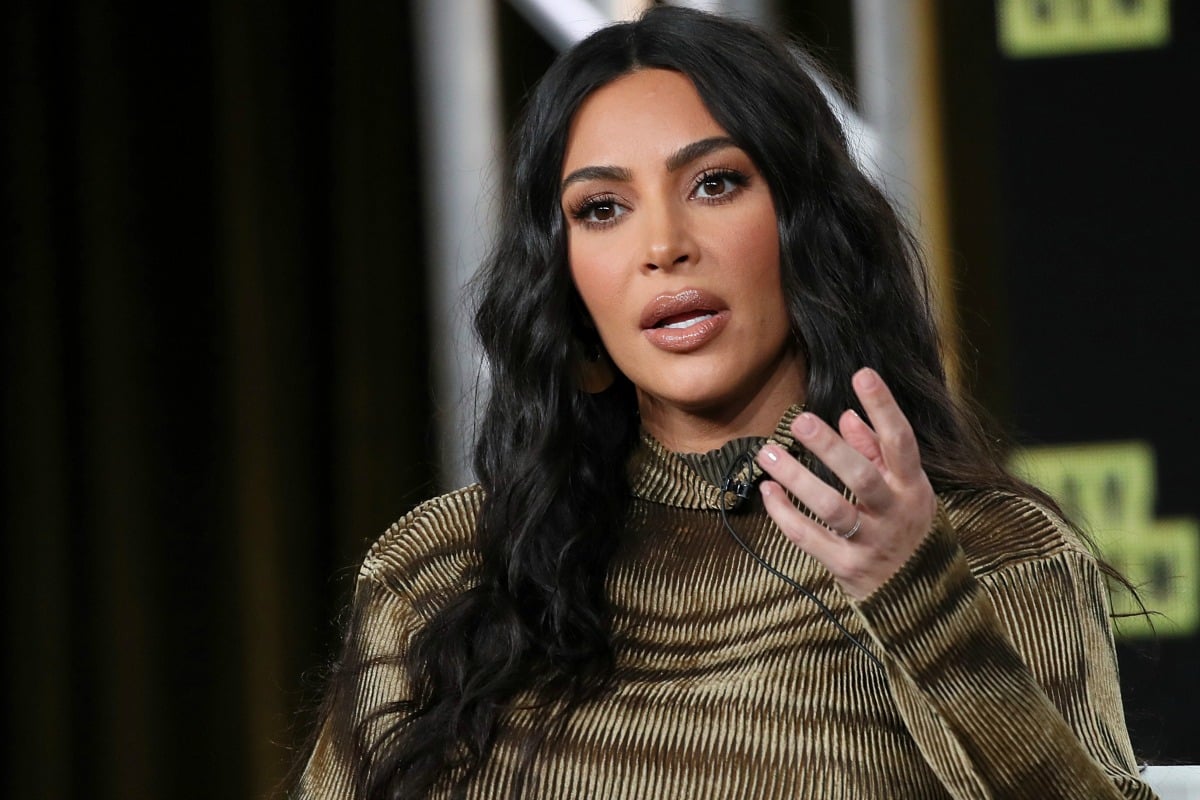
This post deals with sexual assault and might be triggering for some readers.
Just like every other pop culture offering wrapped up in a business plan, Kim Kardashian’s new true-crime documentary is as eye-opening and revolutionary as it is self-serving and problematic.
Kim Kardashian West: The Justice Project, which was released in Australia this week on hayu, chronicles the 39-year-old reality TV star’s road to advocacy as she begins to campaign for criminal justice reform and studies to become a lawyer.
In the two-hour documentary, the entrepreneur and mother-of-four highlights the fact that there are currently 2.2 million men and women behind bars in the United States – more than any other country – and she makes it her personal mission to address the criminal reform crisis and “make an impactful change”.
All by using her own profile, assets and legal team to attempt to secure freedom for Americans she believes have been wronged by an inadequate justice system.
The documentary’s biggest strength is that, no matter how you may feel about Kim Kardashian on a personal level, she’s got the receipts to back up her involvement in The Justice Project.
There’s no hint of the fact that she is simply attaching her name or face to a concept outside of her own advocacy experience or that it’s a case of voice-over stunt casting.
In the words of Kim’s legal mentor and co-founder of #cut50, an organisation working to cut crime and incarceration in the US, Jessica Jackson, “Kim has a very good track record of actually being able to help people get out”.

Top Comments
I feel torn watching it so far too. On one hand, its great Kim is using her power and privilege to help others and focus on prison reform. On the other hand, it's maddening that it requires a high celeb name to get political meetings etc. She can write a letter and show up with a camera crew and get more done than teams of lawyers and advocates who have worked years! That's pretty messed up🙄 Also, I too would have loved to hear more from the people themselves and less about how heartbroken Kim felt🤷♀️
If Kim really wants credibility as an advocate for justice, she should probably start by making reparations to the families her father denied justice by covering up OJs crimes. He gave her the means to become famous and influential through his lucrative practise, she needs to make that right.
Why? He was rich before that case.